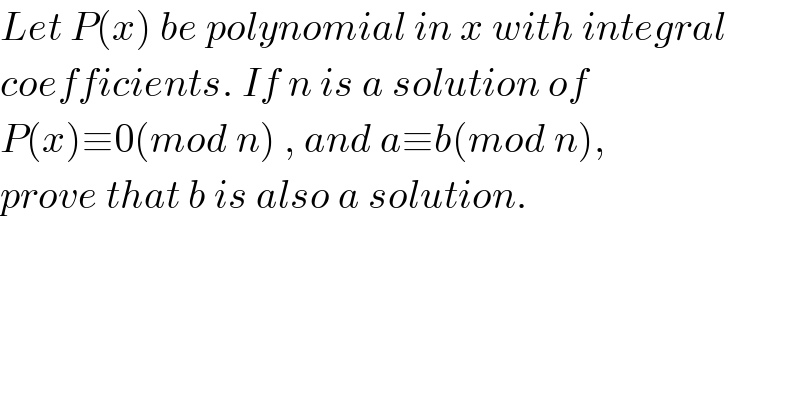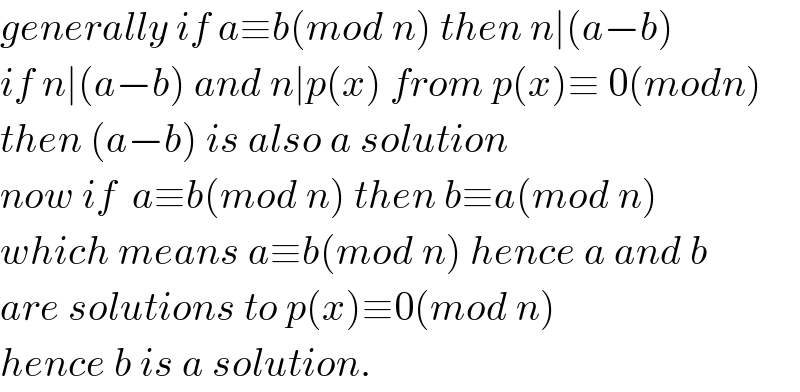
Question Number 76229 by arkanmath7@gmail.com last updated on 25/Dec/19

$${Let}\:{P}\left({x}\right)\:{be}\:{polynomial}\:{in}\:{x}\:{with}\:{integral} \\ $$$${coefficients}.\:{If}\:{n}\:{is}\:{a}\:{solution}\:{of}\: \\ $$$${P}\left({x}\right)\equiv\mathrm{0}\left({mod}\:{n}\right)\:,\:{and}\:{a}\equiv{b}\left({mod}\:{n}\right), \\ $$$${prove}\:{that}\:{b}\:{is}\:{also}\:{a}\:{solution}. \\ $$
Answered by Rio Michael last updated on 25/Dec/19

$${generally}\:{if}\:{a}\equiv{b}\left({mod}\:{n}\right)\:{then}\:{n}\mid\left({a}−{b}\right) \\ $$$${if}\:{n}\mid\left({a}−{b}\right)\:{and}\:{n}\mid{p}\left({x}\right)\:{from}\:{p}\left({x}\right)\equiv\:\mathrm{0}\left({modn}\right) \\ $$$${then}\:\left({a}−{b}\right)\:{is}\:{also}\:{a}\:{solution} \\ $$$${now}\:{if}\:\:{a}\equiv{b}\left({mod}\:{n}\right)\:{then}\:{b}\equiv{a}\left({mod}\:{n}\right) \\ $$$${which}\:{means}\:{a}\equiv{b}\left({mod}\:{n}\right)\:{hence}\:{a}\:{and}\:{b} \\ $$$${are}\:{solutions}\:{to}\:{p}\left({x}\right)\equiv\mathrm{0}\left({mod}\:{n}\right) \\ $$$${hence}\:{b}\:{is}\:{a}\:{solution}. \\ $$
Commented by arkanmath7@gmail.com last updated on 25/Dec/19

$${thnx}\:{sir} \\ $$
